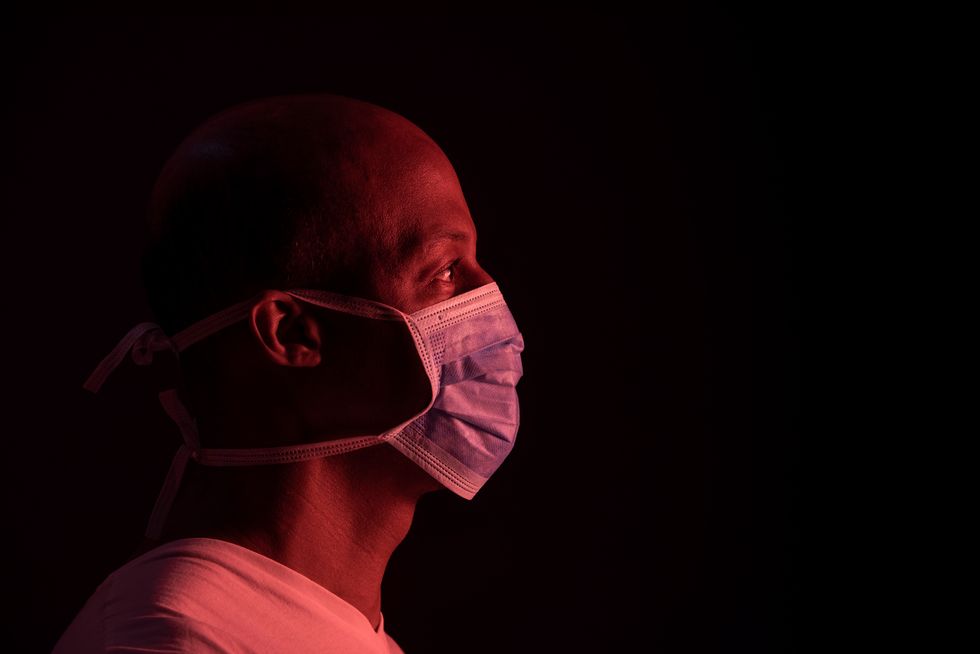By Zoë Julian, University of Alabama at Birmingham; Rachel R. Hardeman, University of Minnesota, and Ryan Huerto, University of Michigan
Recent data show that black, Latino, indigenous and immigrant communities are disproportionately affected by COVID-19, due in large part to the persistent legacy of structural racism – practices and policies that systematically benefit white people and harm people of color.
From the Bronx and Queens, New York to the Mission District in San Francisco, to the Navajo Nation and black communities of New Orleans, Detroit and Oakland, the message is clear: COVID-19 highlights our societal failures at the intersections of public health, health care and social justice. If health inequities weren't severe and oppressive enough, add on the layer of police brutality that takes black lives on a regular basis. No matter where we look, our system has continually devalued black bodies and lives.
As an interdisciplinary team of public health experts, physicians, medical students and critical race scholars, we believe that an important piece of the solution lies in physician training and knowledge of how societal factors affect health. Clinicians in training need to be grounded in the social determinants of health and critical race theory to prepare them for an ethical and effective pandemic response. We'll explain why social justice is so crucial to medical education and the care of marginalized communities.
Public health, social justice and medicine
Public health promotes and protects the health of people and the communities where they live, learn, work and play. Traditionally, physicians study purely biological factors that only make up a small proportion of an individual's risk of disease. Public health professionals study the social determinants of health – factors beyond our bodies that impact health. These include insurance status, access to health care, reliable access to food, safe housing, transportation, education, safety and equal protection under the law.
Social justice is central to public health. This is because research has shown that health disparities are created by social inequities. Public health experts understand that oppressive systems dictate which people have access to key resources that determine health. Racism and classism create conditions where people of color, those living in poverty and other marginalized groups have limited access to resources that impact health – the social determinants.
The social practices that created these gaps in health include redlining, a practice where lenders denied mortgages to eligible buyers solely because of their race. Therefore, black people and other people of color were denied the right of home ownership and upward economic mobility that millions of white people enjoyed. Redlining, now banned, was succeeded by gentrification, whereby middle-class white people come into urban areas and displace black people who have lived in a neighborhood for years.
Both redlining and gentrification perpetuate poverty in communities of color in America's cities. As such, many black and low-income Americans live in communities where clean water for good hand hygiene isn't guaranteed, and social distancing is near impossible in crowded homes. In this way, redlining and gentrification impact the racial inequities seen in COVID-19.
By improving social determinants of health, health care leaders can transform our systems toward adequate COVID-19 prevention, testing and treatment for marginalized communities. But without a critical race lens, experts will still get it wrong. They still might assume that racial and ethnic disparities exist because they believe that race is biological - a longstanding myth. Rather, they must confront how structural racism is a root cause of health inequity.
A strong example of social justice-oriented care is the work of pediatrician Dr. Mona Hanna-Attisha, who helped link toxic lead levels in Flint, Michigan's drinking water with the high lead levels in sick children's blood from Flint. Dr. Hanna-Attisha helped ring the alarm on the Flint Water Crisis, which sparked efforts to clean Flint's drinking water. We believe a similar social justice approach is necessary for beating COVID-19.
COVID makes the case clear
Social justice and human rights are at the center of COVID-19. Therefore, they must be centered in clinician training. Courses on inequity and social justice are still optional in many medicals schools. Most of these efforts are student-run, underfunded or assigned to minoritized medical educators.
COVID-19 has revealed how looking at differences in health through biology alone is limited. It is not sufficient in addressing this pandemic. If people perceive inequities as inevitable, they resign marginalized communities to poor health outcomes. When health providers and the health system take accountability for our inequitable health care system, they can better serve patients and communities.
As practitioners, scholars and people from communities that are most affected by COVID-19, we see human rights as being at the core of our work. Social justice demands us to see people with their full humanity to ensure equity in and beyond a pandemic. Because so many affected by COVID-19 are navigating poverty, food insecurity, lack of housing, child care and insurance issues, physicians must develop a deep understanding and compassion towards all elements that undergird people's health and well-being.
Editor's Note: Bernadette Lim, Edwin Lindo, LaShyra Nolen and Max Jordan Nguemeni Tiako contributed to this article.
Zoë Julian, Health Services Researcher and Clinical Instructor, University of Alabama at Birmingham; Rachel R. Hardeman, Associate Professor, University of Minnesota, and Ryan Huerto, Family Medicine Physician, Health Services Researcher and Clinical Lecturer, University of Michigan
This article is republished from The Conversation under a Creative Commons license. Read the original article.







